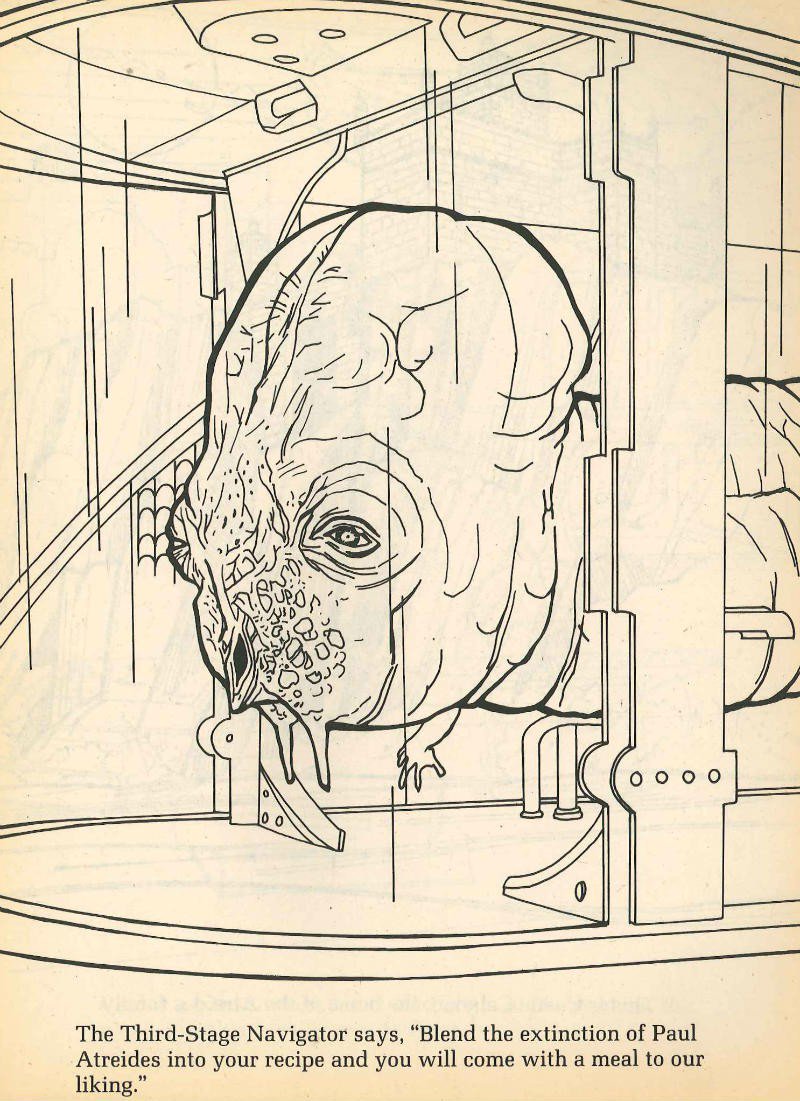It was visually stunning, and though the soundtrack had a lot of "BIG DISCORDANT STING! WORDLESS WAILING IN THE BACKGROUND!" I actually like that sort of thing, so hey! They managed to put the first half of the book onscreen in a way that didn't feel like much had been trimmed out, even though a decent chunk of the book's details, background and worldbuilding had been pared back or removed. One thing I really liked is the way it handles Paul's prophetic dreams, showing flashes of imagery that may or may not come true, some clearer than others, some symbolic. The one where he heard "Follow the friend..." and it shows Jamis, who says "Come, friend, I'll show you the ways of the desert" set up a satisfying realization and resolution, in particular. It also manages to convey the breadth and chaos of Paul's nascent prescience.
I'm not sure how much of that stuff is informed by my knowing the book, though. It might have just been kind of confusing to someone who'd never read it (or not).
I liked what they did with Duke Leto's final moments, the tooth and the gas. In the book and previous adaptations, it was always kind of a wet fart of a scene, just a "Even that failed for no discernible reason. Sucks, huh." Here the Baron does get hit and only barely manages to survive because of his suspensors letting him hide on the ceiling while the gas wipes out the entire rest of the room, and he has to recover from it later. Does it make a big impact on how the story did or will develop? No, but it makes what should be a big moment feel a little more significant.
It also manages to portray the vast scale of the houses and the worlds much more memorably and convincingly than I've seen before, or that you often get from even the books; the scenes with all the fleets of huge landing ships and rank upon rank of soldiers in vast array really stick with you.
Slight criticisms: There could have been a little more of the political intrigue, just one or two scenes to flesh it out a bit. Not because the film suffered for it, just because I like it. With the intrigues backgrounded, the Harkonnens were as well, and I do think there could have been more of the Baron. He's a much larger character in the book and previous adaptations, one of the most memorable ones (for better or for worse), often managing to steal the scene, and here his presence was very toned down. I feel like the decision to make the Baron (and Rabban, and come to think of it, every Harkonnen) bald instead of giving him the original's curly red hair can be seen as a microcosm of a lot of things about this adaptation's approach to aesthetics. The Baron still fulfills his role in the story as evil schemer and villain, but doesn't really have much character to show for it anymore; he's just kind of flat, ultimately, kind of a regular old Bad Guy.



